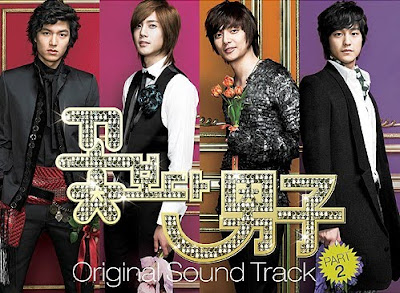Disneyization
Disneyization is portrayed as a globalising force whereby the principles of Disney theme parks are spreading across the world. The dimensions of Disneyization include theming, hybrid consumption, merchandising, and performative labour.
Themed Travel in Korea
Theming has definitely been present in Korea right now because of the themed travel that was offered from Korea. An obvious example would be TV drama themed tours. Such tours are conducted whereby the filming location of the drama or even movies would be promoted as a tourist destination because of the popularity of Korean drama to the world. Visitors will experience what the actors have experience at the filming location. Examples of such destination site would be Namiseom Island where the winter scene of the Snow Falling of Winter Sonata is being filmed at and the First Shop of Coffee Prince located at Hongdae.
Obvious evidence that Disneyization had taken place in Korea would be their world renowned resort, Everland Resort. The resort includes a theme park and since it is a theme park, restaurant, shops and rides at the destination itself would definitely be very similar to a Disney theme park. It is said that it is so similar that many people would compare Everland to Walt Disney World in Orlando, Florida.
Hybrid Consumption
Hybrid Consumption suggests that it is a general trend whereby the forms of consumption associated with different institutional spheres become interlocked with each other and increasingly difficult to distinguish.
Looking back to Everland Resort, according to their website, it suggests that Everland Resort comprises of Everland- one of the four major theme parks in the world, Carribean Bay- world-class water park, Home Bridge- a nature themed lodging facility, Glen Ross Golf Club- a public golf course, Hoam Art Museum and Transportation Museum. With all the amenities of the resort and the accommodation that they have at Everland Resort, it is clear that Hybrid Consumption is present as a combination of forms of consumption are made available to visitors of Everland Resort e.g. eating, shopping, visiting the museum, theme park, water park, etc. With all the amenities present, it became hard to distinguish whether Everland Resort’s primary product is the theme park, the golf course, the museums or the water park.
Merchandising
Merchandising can be in different forms like themed travellers buying goods and products related to the Korean drama from the filming location or as simple as buying the traditional costume of Korea, the Hanbok. All these things are able to tell others at one go that they are bought from Korea just like how Disney sell their merchandises with the Mickey Mouse sign on them. Other products maybe accessories that are worn along with the Hanbok by females called the Norigae, Kimchi, the fermented sauces, ginseng and many more.
Performative Labour
Performative labour suggests that there would be a growing tendency for frontline service work to be viewed as a performance, especially one in which the deliberate display of a certain mood is seen as part of the labour involved in service work.
This could be talking about how workers from a theme park would behave like. In order to give a world-class theme park a standard level of service, service providers are trained to be very friendly and helpful at all times. Try to imagine yourself trying to smile for 8hours a day every time you go to work. As such, it is obvious that sometimes the mood being expressed by the service provider may not be what they really felt but what they needed to do to make sure that visitors would enjoy their experience over at the destination. So this would be one of the examples of performative labour in Korea with regards to Everland the theme park.








